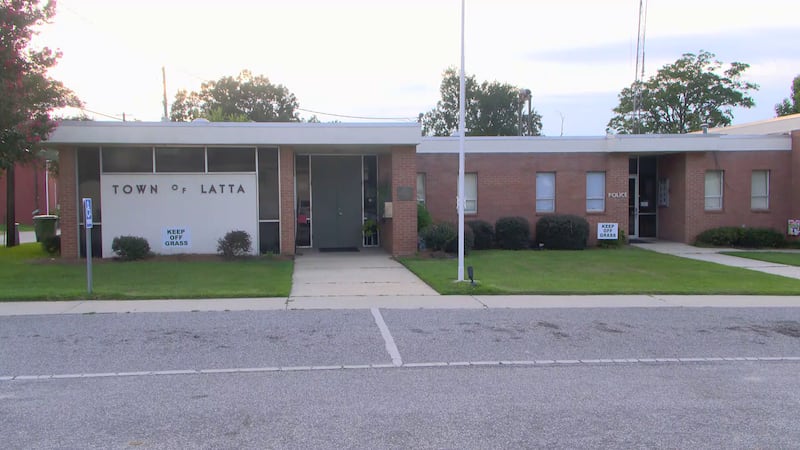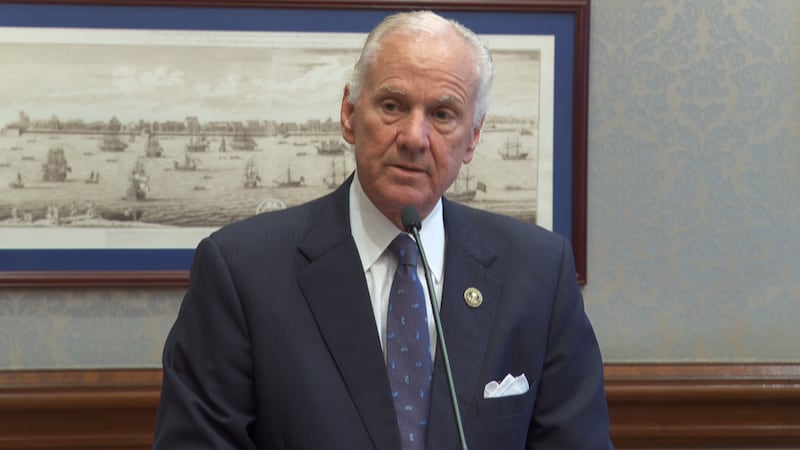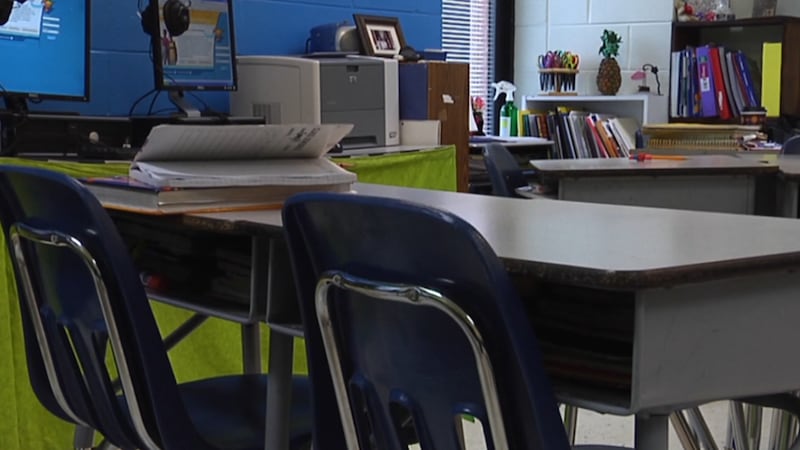SC lawmakers urged to ‘let business do business’ as vaccine mandate ban advances
COLUMBIA, S.C. (WCSC) - A bill advancing at the State House has drawn sharp criticism from South Carolina leaders, including the governor, over fears it could hamstring the state’s response to public-health crises.
Now another part of that legislation faces big opposition from a different group: South Carolina’s business community.
“It could cost individuals and our state jobs,” South Carolina Chamber of Commerce President and CEO Bob Morgan testified to a Senate subcommittee last month.
READ MORE: SC governor: Proposed ‘Medical Freedom Act’ could ‘place innocent lives at risk’
The bill in question called the “Medical Freedom Act,” would prohibit the state from mandating its employees and students can only work or attend school if they have gotten vaccines that have yet to receive full approval from the FDA or have been licensed for use for less than 10 years.
But it would also ban private employers from requiring workers to receive these “novel vaccines” or gene therapy as a condition of employment, facing fines or even prison time for violations.
Morgan has testified on behalf of businesses against the legislation and has sent letters outlining their concerns, saying they will continue to voice their opposition so long as this proposed measure stays alive.
“We just think it’s best for the state not to tell companies that’s a risk they’re going to take if they come to South Carolina,” he said.
Morgan said this was a restriction they fought when it was first proposed a few years ago, during the pandemic, just as they had opposed an edict from the Biden administration for large employers to require workers to receive COVID-19 vaccines.
Neither proposal was ever enacted: The US Supreme Court overturned the White House’s order, while state lawmakers removed the private employer vaccine mandate ban from a bill that eventually became law in 2022. (The final version of that legislation, which was in effect through the end of 2023, prohibited the state from imposing COVID vaccine requirements on its employees and students and allowed workers to who lost their jobs because they did not follow a COVID vaccine mandate to be eligible for unemployment.)
While those earlier measures would have applied only to COVID shots, this new proposal reaches beyond that.
The director of the South Carolina Department of Health and Environmental Control has told senators this bill would also prohibit hospitals and healthcare facilities from requiring their workers to get an annual flu shot because that could be considered a novel vaccine.
“We have the employee rights, but we also have to balance that with the employer, Prisma, nursing homes, responsibilities to protect the patients,” Sen. Margie Bright Matthews (D-Colleton) said.
Supporters of this vaccine mandate ban said they don’t want South Carolina workers to have to choose between a jab and their job.
“Quite personally, I don’t feel that someone who’s living paycheck to paycheck should be put in that situation of, you’re not going to be able to pay your mortgage if you don’t take this shot,” Sen. Richard Cash (R-Anderson) said.
And they argued these mandates impact workers far beyond their working hours.
“They’re gonna tell you something between 7 to 5, or 7 to 7, or 9 to 4, whatever their hours are,” Sen. Shane Martin (R-Spartanburg) and the bill’s lead sponsor, said. “If they’re mandating you take a novel vaccine that’s not proven, as soon as you take that, you’re stuck with it for life.”
But Morgan said lawmakers should leave business decisions to businesses.
“Let’s give employers the benefit of the doubt. Nobody has more at stake in ensuring the health and safety of their workforce. Let’s let them decide,” he said.
Other sections of the bill would remove or reduce the state health agency’s authority to require people who have been exposed to or infected with a disease to quarantine or isolate, and to call in for help from law enforcement if those people don’t abide.
It would also strip the state’s ability to respond to health and human safety threats during and after natural disasters, like hurricanes and floods, prompting Gov. Henry McMaster to write to senators that enacting this bill “could cripple South Carolina’s ability to respond promptly and appropriately to future public health threats and potentially place innocent lives at risk.”
The directors of DHEC and the South Carolina Emergency Management Division joined the governor in urging senators to pump the brakes on the legislation.
Last week, the bill advanced along party lines out of the Medical Affairs Committee and onto the Senate floor, where it faces resistance.
Whether that opposition will stave off further movement on this bill, or whether there will be enough support among the Republican majority to bring about a debate, remains to be seen.
Copyright 2024 WCSC. All rights reserved.








